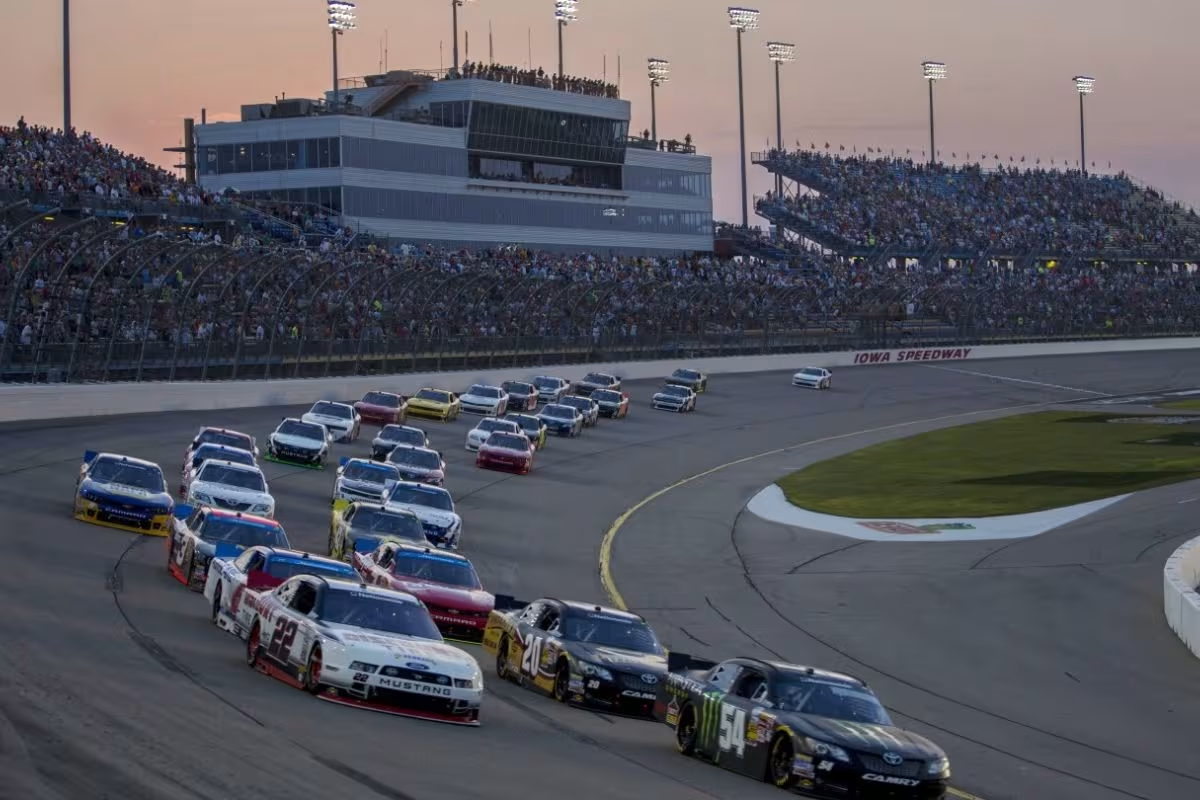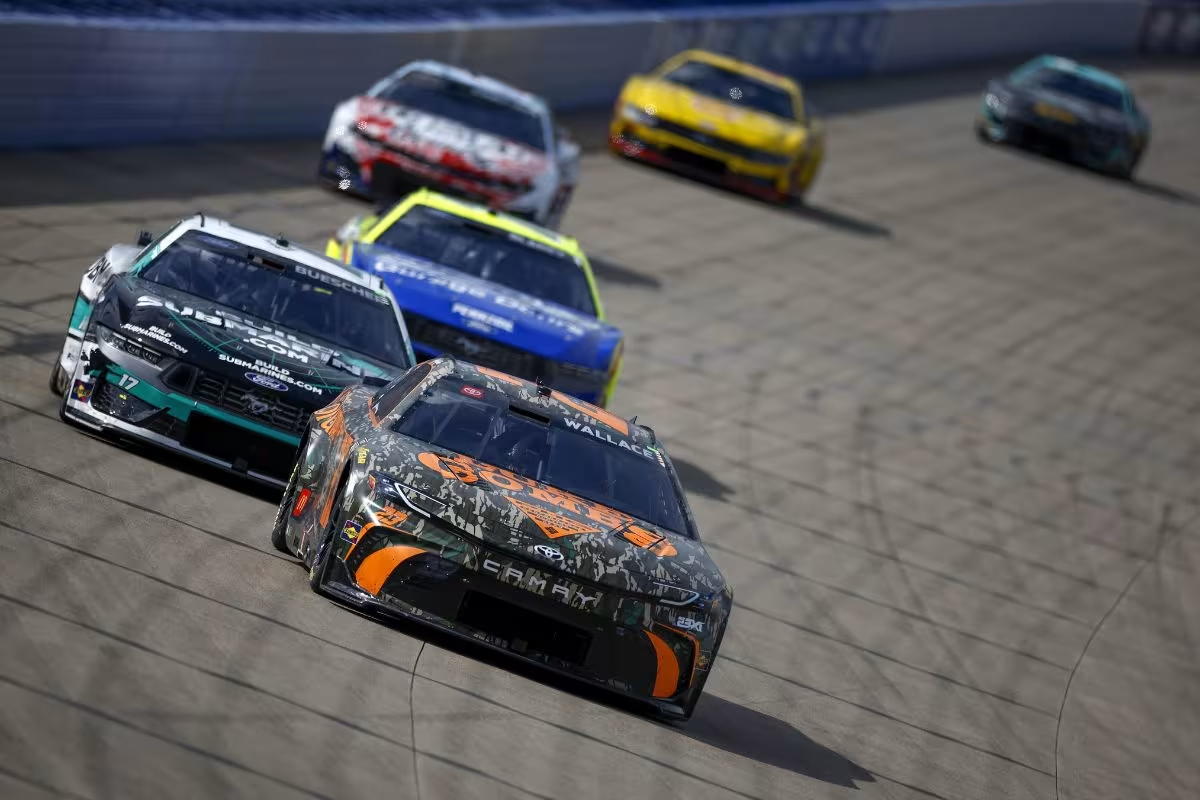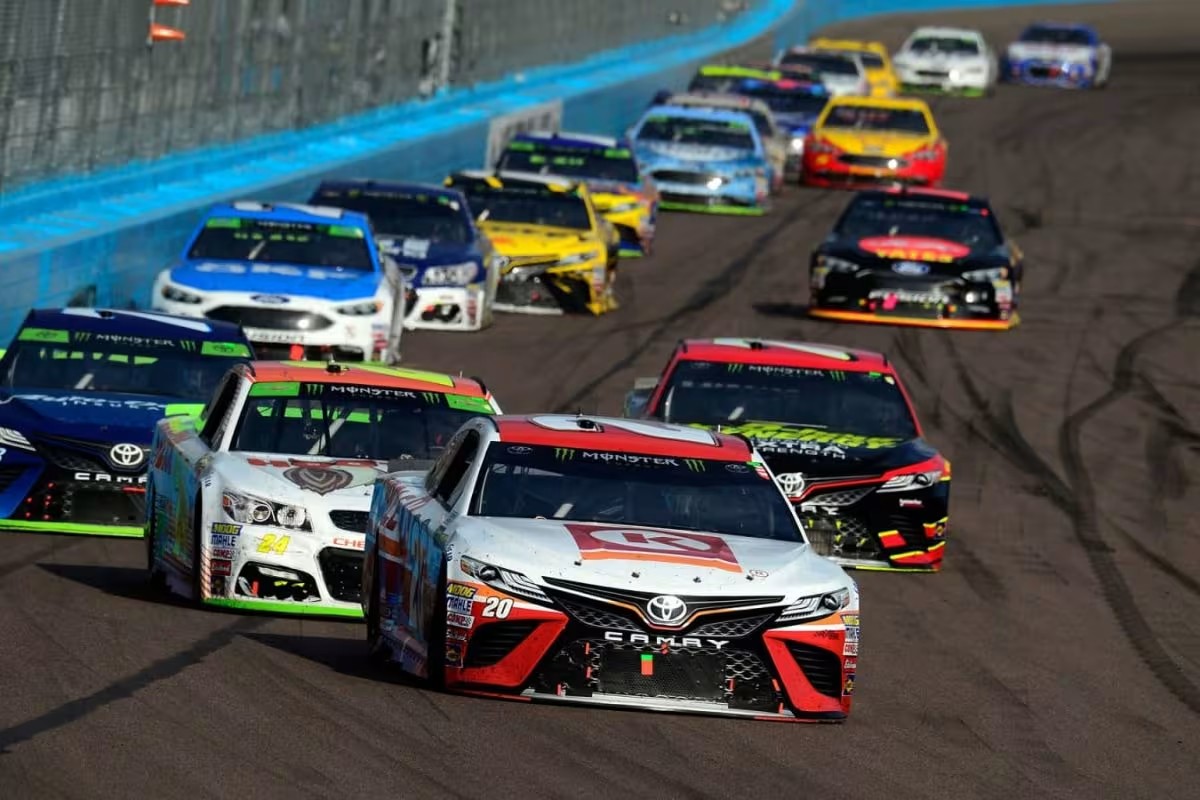NASCAR’s Future in Jeopardy: NASCAR’s recent lawsuit has sparked a conversation especially with concerns surrounding the potential departure of high-profile NASCAR team owner Michael Jordan. As 23XI Racing challenges perceived inequalities benefiting established NASCAR teams, the ongoing lawsuit has exposed a divide within the sport, bringing to light broader questions about NASCAR’s future financial and cultural direction. The stakes are significant; if Michael Jordan’s involvement diminishes, the effects could extend beyond financial loss, reshaping NASCAR’s appeal in an ever-evolving entertainment landscape.
Key Highlights
- The lawsuit by 23XI Racing and Front Row Motorsports highlights inequities in NASCAR charter system, risking Michael Jordan’s involvement and investment.
- Michael Jordan’s presence in NASCAR significantly boosts viewership and sponsorship opportunities, making his potential departure a major concern.
- The ongoing legal battle could redefine charter agreements, impacting NASCAR’s operational models and team dynamics.
- Losing Jordan could diminish NASCAR’s appeal to a diverse fanbase, jeopardizing future sponsorships and revenue.
- Historical parallels, such as the Ferko lawsuit, suggest that resolving current disputes could either strengthen or expose NASCAR’s structural vulnerabilities.
23XI Racing and Front Row Motorsports Lawsuit Against NASCAR
The recent lawsuit filed by 23XI Racing and Front Row Motorsports against NASCAR has sparked considerable controversy within the motorsport community, highlighting deep-seated tensions regarding NASCAR charter system. At the center of this legal battle lies a fundamental dispute over the perceived inequities inherent in NASCAR’s charter agreements, which have been criticized for favoring established NASCAR teams while limiting opportunities for newcomers and smaller organizations.
23XI Racing, co-owned by basketball legend Michael Jordan, has emerged as a vocal critic of NASCAR’s practices, asserting that the current charter system brings competition and fails to recognize the evolving landscape of motorsport. The partnership with Front Row Motorsports signifies a united front against what 23XI racing and FRM deem unfair contractual obligations.
Their decision to forgo signing the charter deal highlights a profound dissatisfaction that has reached a tipping point, leading to this unprecedented legal action against NASCAR. This lawsuit not only places the NASCAR charter system under examination but also raises questions about NASCAR’s long-term viability and its relationship with influential figures like Jordan.
The outcome of this case could redefine the balance of power within NASCAR, ultimately reshaping the future of competitive racing in the United States.
The Position Michael Jordan Put NASCAR In
Michael Jordan’s entry into NASCAR through 23XI Racing has significantly changed the league’s landscape, presenting both opportunities and challenges for the sport. His presence not only brings a level of celebrity that attracts new fans, but it also boosts NASCAR’s visibility in the broader sports market. With millions of followers worldwide, Jordan is an unparalleled asset, amplifying the league’s potential for revenue through increased sponsorship deals and heightened viewer engagement.
However, this infusion of star power comes with complexities. The recent lawsuit concerning NASCAR’s charter agreements has raised important questions about this promising partnership. Michael Jordan’s concerns about the terms highlight a broader dialogue within NASCAR regarding its ability to harmonize traditional operational frameworks with the expectations of high-profile stakeholders. This situation has sparked interest among fans about the future of 23XI Racing and its potential on the track.
Asked whether 23XI may exit @NASCAR if it doesn't get the result it's looking for, Curtis Polk let Jeffrey Kessler answer: "They are going to do their best to keep competing as long as they can, and we expect it to end in a legal victory or settlement that transforms this sport."
— Adam Stern (@A_S12) October 2, 2024
Moreover, the uncertainty surrounding the charter deal raises questions about NASCAR’s governance and tactical decision-making. The league, which thrives on fan engagement primarily driven by its roster of drivers, must navigate the ramifications of potentially losing Jordan as a key figure. His withdrawal would not only diminish the NASCAR’s charm but could also jeopardize its financial health.
NASCAR stands at a crossroads, forced to reassess its model to accommodate the ambitions of its most influential figures while ensuring that the foundational elements of the sport remain intact. The outcome of this situation will certainly shape the future path of NASCAR.
Bob Pockrass on the Lawsuit and Charter Purchases
Bob Pockrass has painstakingly analyzed the ongoing legal dispute surrounding NASCAR’s charter agreements, shedding light on the implications for 23XI Racing and its stakeholders. His examination reveals critical developments, particularly that 23XI and Front Row Motorsports (FRM) have secured purchase agreements for a tertiary charter from a team owner who has signed the 2025 Charter Agreements. The completion dates of these deals, with FRM’s finalized in May and 23XI’s on August 7, underscore the confidence that Michael Jordan and his team have in their legal standing.
The lawsuit not only affects the current operational landscape but also hints at the tactical foresight of 23XI Racing. The extension of Bubba Wallace’s contract during these discussions serves as a proof of the team’s optimism about racing in the upcoming season. This move suggests a commitment to long-term success, reinforcing their belief in a favorable resolution.
Pockrass’s insights reveal that the lawsuit’s outcome could have considerable ramifications for the financial and operational viability of teams within the NASCAR ecosystem. With high stakes involved, the resolution will likely shape the future landscape of charter agreements, impacting not only 23XI but the broader competitive framework within NASCAR itself.
Curtis Polk and Jeffrey Kessler on the Lawsuit Outcome
Curtis Polk was asked about the potential outcome for the team if they were to lose the lawsuit. Instead of addressing the question directly, Polk deferred to their lawyer, Jeffrey Kessler.
“They are going to do their best to keep competing as long as they can, and we expect it to end in a legal victory or settlement that transforms this sport.”-(kessler)
This statement highlights the exciting potential for growth and opportunity presented by the lawsuit. A favorable outcome could enhance 23XI Racing’s operational viability and reassure potential investors and team owners about the stability of the NASCAR charter system.
The involvement of a high-profile figure like Michael Jordan has already brought a diverse fanbase to the sport, and maintaining this connection could significantly benefit NASCAR’s identity and its ability to attract new audiences.
As a result, the outcome of the lawsuit holds great promise. It could redefine perceptions of NASCAR’s charter system and set positive precedents for future dealings, making the stakes high for Kessler and Polk, along with the sport at large.
Ultimately, this legal battle could represent a turning point for NASCAR, offering the chance to strengthen its foundations and enhance its appeal in a competitive market.
Comparison to the Ferko Lawsuit and Potential Implications
NASCARman shared details from a previous lawsuit against the sport in a repost on X.
“A lot of this lawsuit is reminiscent of the language used in the Ferko Lawsuit of 2002. Imagine NASCAR executives would definitely want a settlement rather than actually go to trial over monopoly claims, but that could take a long time to reach.”-(nascarMAN)
In the repost, NASCARman shared one of Bob Pockrass’s tweets, which outlined the main issue that 23XI Racing and FRM have with NASCAR.
“This is a case about the unlawful monopolization of premier stock car racing by the France family in order to enrich themselves at the expense of the premier stock car racing teams that the fans come out to see and that sponsors and broadcasters value.”-( lawsuit statement)
Ferko’s lawsuit alleged that NASCAR and ISC violated an implied agreement to provide Texas Motor Speedway with a second NEXTEL Cup race each season. It also accused NASCAR and ISC of antitrust violations, claiming they were obstructing SMI from securing that additional race. Filed in February 2002, the lawsuit was settled in May 2004 after two years of negotiations. The case did not reach trial because ISC opted to sell North Carolina Speedway to SMI as part of the settlement.
News in Brief: NASCAR’s Future in Jeopardy
The ongoing lawsuit involving 23XI Racing highlights major tensions within NASCAR charter system, revealing inequities that may jeopardize the participation of high-profile figures such as Michael Jordan. If 23XI Racing’s challenges prove successful, the implications could extend beyond financial ramifications, potentially reshaping the competitive landscape and altering the attraction of the sport for new fans and sponsors. The outcome of this legal struggle will likely influence the future dynamics and structure of NASCAR, necessitating careful consideration by all stakeholders.
ALSO READ: Michael Jordan’s 1 Million Dollar Gesture to Help People in Need



